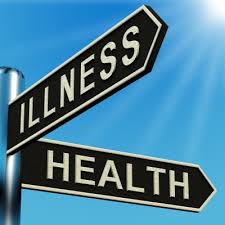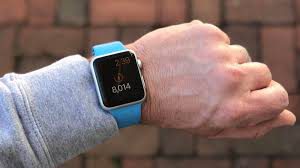We do not see health as it is; we see health as we are. My late mother and father divided their lives into two segments: before they had multiple sclerosis and colon cancer respectively, and after: their “well” selves and their “ill” selves. Wellness and illness can be among the primary drivers of our own identities—of how we subjectively define ourselves in relation to the world.
Today, wellness has left behind its reputation as merely the converse of illness. Health is now perceived by people—each in their own fashion—as an aspirational state of being where one is at one’s best.  It has moral as weas physical implications. The guilt one feels biting into a cupcake. The runner’s high. The righteous burn in pursuit of a personal duty. “I’m going to be good today,” many of us have thought, because to betray one’s health rituals is a betrayal of self.
It has moral as weas physical implications. The guilt one feels biting into a cupcake. The runner’s high. The righteous burn in pursuit of a personal duty. “I’m going to be good today,” many of us have thought, because to betray one’s health rituals is a betrayal of self.
One great influence behind this sea change is the ready availability of therapies that make it hard not to comply. How can any reasonable person say “no” to one pill once a day for many conditions that used to cause serious morbidity and compromise our longevity? Heart disease, diabetes, depression, even AIDS can all be medically well managed with less effort than ever before. This has helped create an imperative to embrace health as a self-defining value. The simpler it is to achieve health goals, the more people want to set them. Wear a pedometer and make your steps goal for the day. Track your sleep habits. It’s both a psychic and physical reward.
Because medical and technological advances now put an idealized state of health within easier reach, we have become the kind of people who feel that we are not being true to ourselves if we neglect to grab hold of it. Pharmaceutical companies are not the only active force in the dynamic. People implore healthcare manufacturers to help them boost whatever they feel is holding them back from their idealized healthy selves, whether it is a disease or just normal signs of an aging body.  Wrinkles, pregnancy and baldness may not be pathological conditions, but that doesn’t stop people from insisting on Botox, oral contraceptives, and Propecia (finasteride) respectively. And they do insist on them, not because healthcare manufacturers have brainwashed the country into becoming “patients,” but rather because people now more than ever demand greater control over their bodies; and the technology exists to empower them.
Wrinkles, pregnancy and baldness may not be pathological conditions, but that doesn’t stop people from insisting on Botox, oral contraceptives, and Propecia (finasteride) respectively. And they do insist on them, not because healthcare manufacturers have brainwashed the country into becoming “patients,” but rather because people now more than ever demand greater control over their bodies; and the technology exists to empower them.
Today health and wellness extend into all aspects of life beyond therapies and Big Pharma. Walking down the cereal aisle in the grocery store, you would think you entered a clinic of sorts as you read how Cheerios and other whole grain products are part of a heart-healthy regimen. Chairs and car seats are now ergonomically designed so that the alignment of your spine mirrors the alignment with your self-perceptions about doing right by your body. Spas issue a siren’s call to all whose mental wellbeing craves care and feeding.  Fitbit, Jawbone, and other accessories keep us in touch with how far we’ve walked or biked or how deeply we’ve slept. Dating sites demand that we declare if we are “drug and disease free.” From cosmetics to clothing to sunglasses to emotional support animals, there is hardly a product or service that doesn’t strive to appeal to how we use health and wellness to define ourselves.
Fitbit, Jawbone, and other accessories keep us in touch with how far we’ve walked or biked or how deeply we’ve slept. Dating sites demand that we declare if we are “drug and disease free.” From cosmetics to clothing to sunglasses to emotional support animals, there is hardly a product or service that doesn’t strive to appeal to how we use health and wellness to define ourselves.
Illness can ignite an identity crisis because it robs people of who they aspire to be. Now, “wishing you good health” is not just a benign toast one makes before sipping a glass of wine, it’s a recognition of a sentiment to remain who you are and who you want to be. So drink up (reasonably), and as you do, celebrate life as you know it today, because tomorrow you may wake up to a new identity—one defined by illness instead of health. Fingers crossed that doesn’t happen.

How do we keep our health fit and fine?
I was browsing the web and stumble upon your post on this. This article actually inspired me to follow some healthy steps to become more health rich.
Thank You Vince Parry, for sharing the valuable information .
This is exactly what I was looking for!